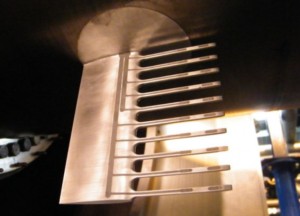 The French Ministry of Higher Education & Research has recently awarded the so-called CIR accreditation (Crédit d’Impôt Recherche) to the National Aerospace Laboratory-NLR. The Ministry awards this recognition to institutes and organizations with proven R&D capabilities. The CIR accreditation is aimed at French companies that outsource their research and development activities to organizations like NLR. French clients of CIR-accredited organizations receive significant tax benefits. They can deduct 30 percent of their R&D expenditure from their taxable income, up to a maximum of 100 million euro. The French scheme is among the most attractive fiscal arrangements of its kind in Europe and covers a broad range of R&D expenditure, including salaries and laboratory costs. The CIR accreditation will make it easier for NLR to collaborate with French companies and generate business in France.
The French Ministry of Higher Education & Research has recently awarded the so-called CIR accreditation (Crédit d’Impôt Recherche) to the National Aerospace Laboratory-NLR. The Ministry awards this recognition to institutes and organizations with proven R&D capabilities. The CIR accreditation is aimed at French companies that outsource their research and development activities to organizations like NLR. French clients of CIR-accredited organizations receive significant tax benefits. They can deduct 30 percent of their R&D expenditure from their taxable income, up to a maximum of 100 million euro. The French scheme is among the most attractive fiscal arrangements of its kind in Europe and covers a broad range of R&D expenditure, including salaries and laboratory costs. The CIR accreditation will make it easier for NLR to collaborate with French companies and generate business in France.
NLR was awarded the accreditation in connection with the research it performed for SNECMA, a French manufacturer of aircraft and rocket engines. The work involved acoustic measurements for modal characterisation of a low-pressure turbine. For this purpose NLR designed and manufactured a so-called “pressure rake”, and installed the rake in a testing facility on the customer’s premises. The measurements were performed by a joint NLR/SNECMA team in Villaroche, France.
The CIR accreditation will help NLR in pursuing its strategy to penetrate the French markets for gas turbines and light-weight materials and composites. Last spring, a “Partners for International Business” (PIB) covenant was signed with support from the Dutch embassy in Paris. The PIB programme is an initiative of the Dutch Ministry of Economic Affairs. Its aims include promoting collaboration between the Dutch and French aviation industries by identifying, developing and acquiring contracts for the Dutch private sector. The embassy subsequently also played an initiating role in obtaining the CIR accreditation. This is an excellent example of the benefits that can be achieved through international collaboration in the “Golden Triangle” of government, knowledge organisations and industry.


